We just returned from a road trip to Sekhukuneland, a part of Limpopo Province, where we took Romeo and his Aunt Portia to see some of their family. We stayed with Romeo’s grandmother Abina, a Pedi woman in her 80s (or somewhere thereabouts, she doesn’t know her exact age). Carla and Abina’s daughter Pinky were business partners for several years, so Carla has known Abina for a long time. When Pinky died seven years ago, they were not quite finished building a house for Abina. So Carla finished the house which Pinky had designed with generous living space to accommodate the whole family and extra big courtyards and a long porch with arched, open windows. Pinky knew her mom loved living outdoors, and that’s where we found Abina the afternoon we pulled up: on her knees in the courtyard in front of her house, smoothing out a fresh layer of dung flooring to dry under the brazen sun. She has no phone so we couldn't let her know we were coming, but it seemed she had prepared for our arrival.
The village where Abina lives is called India, and the Pedi people in the area are a subdivision of the Northern Sotho tribe. India is a four-hour drive north of Johannesburg through big, open country with rolling hills and long vistas – the “high veld.” Since it’s just past winter and still early in spring, everything is dry and brown except the occasional irrigated fields.
Abina (pronounced “Ah-BEE-na”) shares her house with her daughter Anna and three grandchildren: seven-year-old Baleseng (“Bally-sing”), two-year-old Pinky, and one-year-old Ethan. Baleseng and little Pinky are Portia’s daughters, and Ethan is Romeo’s little brother. So Great Grandmother Abina and Grandmother Anna oversee a very youthful household in their home village, while Romeo lives in Soweto with his mom Tebatso who works with Carla selling Zulu baskets at a marketplace in Johannesburg.
Don’t worry about keeping all these names and relationships straight! It’s easier just to think of everybody as family, which is what Carla and I have been doing since our childhood in Wausa (where my Grandfather David and Carla’s Grandmother Elsie were brother and sister, and almost everyone in our midst was some kind of relative). Small towns in rural Africa are not so different from small towns in rural America, except maybe more like the rural Nebraska of my parents’ upbringing than my own. Every time I see an African child rolling a tire rim along with a stick, I remember my dad telling me that he did the same thing as a child inventing his own toys.
Carla has been to India many times over the years. She tried to prepare me but some things you just have to experience. Like darkness when it gets dark, and no water tap to turn on, and sitting on the porch rather than inside the house to catch what little breeze might temper the mid-day heat. I’ve been seeing these things for months now but an arm’s length away. I remember sitting in the bus riding back from Marie and Christian’s wedding in northwestern Uganda and reaching the outskirts of Kampala just as the sun was setting. The bus slowed to a crawl in the mess of city traffic just as the sky darkened and the houses and shops and stalls lining the streets lit up with candles. The activity didn’t diminish, just the daylight, as people still filled the streets and the housefronts. I’ve also seen countless people – of all ages, in all parts of Uganda and Kenya and now rural South Africa – crowded around pumps filling big, plastic, yellow (and sometimes red or blue) jerry cans. And I’ve seen women and children carrying these jugs of water on their heads, and men riding bicycles transporting more jerry cans than you’d think could fit on one bike frame.
So it’s about time I got to live some of these things myself. A few days give only a bit of an idea, but some idea is better than none.
Carla says Abina used to have a fire going most of the time in the firehouse off the side courtyard, but now she and Anna have an electric burner for cooking food. We ate cabbage and butternut squash and lots of mealie pap, the South African maize equivalent of Kenyan ugali and Ugandan posho, with a gravy made of tomatoes. Everyone sits around the courtyard to eat, and sometimes a goat walks through, finds a banana peel on the ground, and saunters out munching.
The household’s water supply was really low, so on the third day Baleseng and Romeo borrowed eight 25-liter jugs from a neighbor, and Carla drove us to the water pump (about a kilometer away) to fill the jugs. Abina, whose husband died a long time ago, used to pay a local girl to bring water periodically but now she doesn’t have enough money. Since Anna moved to India from Soweto six months ago, she has been getting the water and pushing it back in a wheelbarrow, but her hips have been bothering her lately. Carla and I and Portia and Romeo and Baleseng made a good team in carrying two loads of water – 400 liters – from the back end of Carla’s van through the courtyard and into the kitchen house where we dumped jug after jug of water into large barrels, where Anna scoops it out for cooking and washing. Ethan and Pinky, who are always fetching things for their elders, kept picking up the empty jugs and hoisting them around to help.
While we were there with a vehicle, we drove Abina to see two nieces and a grand niece and a great grand niece who live too far away to reach on foot, so Abina got to visit family and we all saw more of the valley. One day we left Portia to visit a cousin and then Carla and I and the two seven-year-olds drove back into the valley where an uncle lives by himself. He was a tall, wiry man who happily took the two naatjies (tangerines) that Baleseng gave him and let me take his photo. Then Carla drove us places where no road was visible to my eye but we found what she was looking for: a pump out in the boonies where one person can take a “shower” while someone else pumps. When we got back to Aunt Duce’s house I showed her the photo of her brother and she laughed like it was hilarious to see him.
India sits on one side of a valley where one ridge rises just behind the house and another ridge of foothills faces the house from across the wide stretch of flat land. In the evenings, we ate outside in the courtyard just as stars popped out above the ridgelines. When supper was done, Anna lit candles, and the little ones, especially Pinky, kept close by Abina’s side.
On our last day there we got up extra early to take Abina to the doctor in a nearby town. The clinic does not take appointments so people just line up and wait to see the doctor on a first-come, first-served basis. We got there about half past six on a morning that had turned cool and windy. A few people were already sitting there outside the gate, wrapped in blankets. By the time the doors opened at 8 there were about thirty people, old and young, moms with babies, and Carla and Portia and me with Abina, who waited patiently for her turn. Portia went in with her grandmother and later told Carla and me what the doctor said (Portia speaks some English as well as her mother tongue, Abina speaks only Pedi, and Carla and I speak only English).
When we left India yesterday morning we had two more passengers. We brought Ethan and Pinky back to be with their mothers, stopping first at the new SuperSpar store near India to buy some nappies (pampers) so that we wouldn’t have any accidents in the car, then driving everyone to Soweto, the huge township on the southwest edge of Jo’burg.
Now Carla and I are back in her garden flat in a neighborhood that could be mistaken for Phoenix or L.A. We each stood under a hot shower last night and today we had salads for lunch and herbal tea. I miss the laughing and crying of Ethan and Pinky, the low voices of Abina and Anna, and the cousinly banter of Baleseng and Romeo playing with the balloons from Carla and blowing bubbles at their little siblings. And I wonder how Abina will do getting around with her aching kidney and sore knee, and how she will manage without the two little ones at her side.
Thursday, September 27, 2007
Tuesday, September 18, 2007
Another Africa
I’ve been in South Africa for eight days now. Several borders and a couple weeks ago, I was still sitting in Entebbe taking a deliberate interlude, sipping a chocolate milkshake on the lawn and telling yet another inquiring waiter at the Botanical Beach Hotel, “They’ve gone back to New York, it’s just me here now.” Then I checked out and pulled my suitcase a kilometer or two down the dirt road to a more affordable place: a little, round, thatch-roofed banda tucked away in the Uganda Wildlife Education Center, which is a refuge for wildlife saved from various parts of Africa. My cottage had a gas cooker so I made my own tea, and there were two twin-size beds which made me wish my friend Marybeth were sharing the interlude with me. She would love seeing all of my animal neighbors! At night I fell asleep to strange guttural sounds, and one morning I looked out at two ostriches walking by. On the weekend I took a matatu into Kampala and stayed the night with Charlotte. How I love how she calls me Mom! She and Malko and I went to a lively church service the next morning before driving back to Entebbe, where the three of us walked all through the refuge to see the chimpanzees, rhinos, vervet monkeys, zebras, crested cranes, and one sleepy lion.
James from the wildlife refuge drove me to the Entebbe airport in 3 a.m. darkness and I flew to Nairobi and then to Johannesburg in one brief morning. Flying is efficient, but travel by road or by water is better for keeping heart and mind together. I’ve left so many hopes and friends and possibilities trailing behind me and I don’t know if that is kind or cruel. I am not responsible for the whole world but I am responsible for me. And I want to make that count.
So here I am in South Africa feeling completely at home with my cousin Carla but not yet at ease in this country that actually was home for me – 35 years ago. I lived here as an exchange student in 1972-73 when apartheid ruled and injustice was everywhere. Carla moved here in 1994 just before the historic election, which I witnessed from the states in newspaper stories about Mandela and photos of people lined up for miles to cast their first-ever vote.
I’ve wanted to return to South Africa for so long, and being welcomed by my childhood buddy is almost miraculous. But I didn’t expect the wild mix of emotions I’ve experienced since landing here last week. Initially I was stunned at the sight of so many white people, and so many nice cars – driven by both white South Africans and black South Africans – swooshing along on wide boulevards, and the absence of potholes, and manicured neighborhoods. I had a momentary emotional arrest just walking into a grocery store with Carla. It was a huge place with wide aisles and rows and rows of merchandise and bright lights that caught me like a deer in headlights (does a deer ever fight back tears?).
The wealth overwhelms me. It’s not easy reconciling the South Africa I am seeing around me and the Africa I’ve been experiencing in the last few months. First world/third world relationships are hard to rectify.
The other big set of differences – the distinctions between apartheid-era South Africa and contemporary South Africa – are stunning in other ways, hugely positive but with rough edges like crime and safety, issues that are faced by all countries of the world but did not confront South Africa in the same way when it was a police state. When I came here as an exchange student in 1972, apartheid ruled everything. Books were censored, people were banned, and benches in parks were labeled “For whites only.” Black South Africans who worked in Jo’burg either lived in servants’ quarters on white property or rode the nightly train back to Soweto or some other designated township. Schools, churches, hospitals were all separated by race, and the quality of education and care was entirely skewed.
One evening last week I went with Carla to a school here in Johannesburg to see Romeo perform in a student musical. Romeo is a 7-year-old black kid who has cerebral palsy, and Carla has helped raise him since he was born. In his classroom beforehand, Romeo and a bunch of other kids in costumes were hopping around with excitement. That all seemed normal to me. But later, in the auditorium, when the lights were dimmed and the curtains opened and kids of all colors came out on the stage, my heart did a little jump and I thought, wait a minute, where am I, is this…South Africa? I was glad it was dark in there because the tears that I’d felt rising at several odd times in those first few days just finally rolled out.
That program was so fun! All the kids – primary through middle school – had parts in a “round the world to 2010” program that was done in English and Afrikaans and pop songs and folk songs. Four girls in wheelchairs danced to Edelweiss, a bunch of boys did an African gumboot dance, and a large group of cowboys and cowgirls did a square dance when they got to the American portion, which also featured Oprah, Tom Cruise, Dolly Parton, and Paris Hilton accompanied by a guard. A troupe of Michael Jacksons performed, Elvis sang his hound dog song, and Oprah interviewed a boy dressed as the Statue of Liberty, who sang “I’ll do it my way.” Then a bunch of Marines marched in.
The best part was watching Romeo, wearing his hat and Bavarian lederhosen, dancing the folk dance he had practiced with Carla and looking perfectly at home on a stage filled with kids of all description.
So it’s a new country to get to know. I hardly recognize it. But staying with Carla feels as natural as being back in Wausa together. Her garden flat looks out to beds of flowers and vegetables surrounded by trees, and we hang clothes on the line outside to dry. But this is definitely not Kansas anymore. Or Nebraska! Nor is it quite the land that I still hope it becomes. Romeo and a whole generation may have been born after the end of apartheid, but the remnants of an old system don’t disappear overnight. And making sense of the still-strange blend of riches and crimes and cultural diversity that characterize this beautiful country may take a while.
I’d be leaving for JFK this week, according to my original schedule, and back in Alaska next week. But instead I’m staying on for October and November and some of December. Carla and I have been talking nonstop and we’ve hardly begun. There’s lots we have to do. I need to have more time in Uganda too. So a few more months will be a start.
James from the wildlife refuge drove me to the Entebbe airport in 3 a.m. darkness and I flew to Nairobi and then to Johannesburg in one brief morning. Flying is efficient, but travel by road or by water is better for keeping heart and mind together. I’ve left so many hopes and friends and possibilities trailing behind me and I don’t know if that is kind or cruel. I am not responsible for the whole world but I am responsible for me. And I want to make that count.
So here I am in South Africa feeling completely at home with my cousin Carla but not yet at ease in this country that actually was home for me – 35 years ago. I lived here as an exchange student in 1972-73 when apartheid ruled and injustice was everywhere. Carla moved here in 1994 just before the historic election, which I witnessed from the states in newspaper stories about Mandela and photos of people lined up for miles to cast their first-ever vote.
I’ve wanted to return to South Africa for so long, and being welcomed by my childhood buddy is almost miraculous. But I didn’t expect the wild mix of emotions I’ve experienced since landing here last week. Initially I was stunned at the sight of so many white people, and so many nice cars – driven by both white South Africans and black South Africans – swooshing along on wide boulevards, and the absence of potholes, and manicured neighborhoods. I had a momentary emotional arrest just walking into a grocery store with Carla. It was a huge place with wide aisles and rows and rows of merchandise and bright lights that caught me like a deer in headlights (does a deer ever fight back tears?).
The wealth overwhelms me. It’s not easy reconciling the South Africa I am seeing around me and the Africa I’ve been experiencing in the last few months. First world/third world relationships are hard to rectify.
The other big set of differences – the distinctions between apartheid-era South Africa and contemporary South Africa – are stunning in other ways, hugely positive but with rough edges like crime and safety, issues that are faced by all countries of the world but did not confront South Africa in the same way when it was a police state. When I came here as an exchange student in 1972, apartheid ruled everything. Books were censored, people were banned, and benches in parks were labeled “For whites only.” Black South Africans who worked in Jo’burg either lived in servants’ quarters on white property or rode the nightly train back to Soweto or some other designated township. Schools, churches, hospitals were all separated by race, and the quality of education and care was entirely skewed.
One evening last week I went with Carla to a school here in Johannesburg to see Romeo perform in a student musical. Romeo is a 7-year-old black kid who has cerebral palsy, and Carla has helped raise him since he was born. In his classroom beforehand, Romeo and a bunch of other kids in costumes were hopping around with excitement. That all seemed normal to me. But later, in the auditorium, when the lights were dimmed and the curtains opened and kids of all colors came out on the stage, my heart did a little jump and I thought, wait a minute, where am I, is this…South Africa? I was glad it was dark in there because the tears that I’d felt rising at several odd times in those first few days just finally rolled out.
That program was so fun! All the kids – primary through middle school – had parts in a “round the world to 2010” program that was done in English and Afrikaans and pop songs and folk songs. Four girls in wheelchairs danced to Edelweiss, a bunch of boys did an African gumboot dance, and a large group of cowboys and cowgirls did a square dance when they got to the American portion, which also featured Oprah, Tom Cruise, Dolly Parton, and Paris Hilton accompanied by a guard. A troupe of Michael Jacksons performed, Elvis sang his hound dog song, and Oprah interviewed a boy dressed as the Statue of Liberty, who sang “I’ll do it my way.” Then a bunch of Marines marched in.
The best part was watching Romeo, wearing his hat and Bavarian lederhosen, dancing the folk dance he had practiced with Carla and looking perfectly at home on a stage filled with kids of all description.
So it’s a new country to get to know. I hardly recognize it. But staying with Carla feels as natural as being back in Wausa together. Her garden flat looks out to beds of flowers and vegetables surrounded by trees, and we hang clothes on the line outside to dry. But this is definitely not Kansas anymore. Or Nebraska! Nor is it quite the land that I still hope it becomes. Romeo and a whole generation may have been born after the end of apartheid, but the remnants of an old system don’t disappear overnight. And making sense of the still-strange blend of riches and crimes and cultural diversity that characterize this beautiful country may take a while.
I’d be leaving for JFK this week, according to my original schedule, and back in Alaska next week. But instead I’m staying on for October and November and some of December. Carla and I have been talking nonstop and we’ve hardly begun. There’s lots we have to do. I need to have more time in Uganda too. So a few more months will be a start.
Sunday, September 2, 2007
Crossing the border into...September?
How did it get to be September already? Equator weather confuses me. The minor changes in temperature seem like variations in an eternal summer. Yesterday, in the early morning Kitale air, David the Manor House driver had the heater going in the van as he drove me one last time to town. As the bus pulled out, I noticed that all the other passengers were wearing coats and I was the only one wearing only a short-sleeved shirt. Margaret, the head caterer at Manor House, told me that if I came back in December or January it would be hot and dusty. Not fresh and wet like a morning after a night of rain.
Tanzania will have to wait til another year or lifetime. After working like crazy to finish a newsletter for Manor House, I was finally booking a departure when my beloved Heather and Hanna emailed to say they had finished their teaching and filming a week early and were ready to head back to the U.S. So together we birthed Plan B: to converge back in Uganda, where we started two months ago. H & H flew from Dar es Salaam yesterday and I took the slower, cheaper, funner, and only way I know to get here in one day from western Kenya. A series of matatus got me here before sundown: Kitale --> Bungoma --> Malaba --> Kampala -->Entebbe. Plus a final ride on a mini-bike boda. I rode on the back (wearing my daypack) while the driver managed to keep my suitcase upright in front of his body, and he dropped me at our meeting point, a hotel near the airport where we can enjoy a couple days together.
So I found myself crossing the border at the same spot where I passed four weeks ago, and riding in the back seat with a young Kenyan going to Kampala to start school on Monday at Makerere University, sharing biscuits and bananas from my snack bag and from the vendors, and moving slowly through the crazy Kampala traffic, then so relieved to get to the shore of Lake Victoria while it was still the first day of September. H & H were here waiting for me and now we're enjoying a pause. Soon they are going and I am staying.
Last week I found out what happens when I don't get to the internet for several days. Friends start conversing on my blog! Maybe that's another reason I've come here - to connect people at home! I hope all of you who are reading my blog but not posting comments are at least READING the comments. And because I have internet access RIGHT IN MY ROOM at this moment and I want to post this note before H & H get back with our milkshakes, I'm going to respond to my commenters right here in public. Regarding the size of the world, it seems huge when you're flying from that side of the planet to this side, even though that's trotting at jet speed. It seems small once you land, anywhere, because life is here, everywhere, in both its familiar and unfamiliar guises, and it becomes shockingly obvious that we are all breathing the same air and sharing a slice of the same experience.
MY question is, how big is the world for those who live in the towns around here where travel happens by foot (or matatu), and you go only as far as you can walk, and your food feeds you as long as it's coming out of the ground, and your kids are in school now but you don't know if they will be able to continue? Or you got a bachelor's degree in social work (like the guy next to me on my last day at Royal Cybercafé) and you're still looking for work two years later? I know imagination stretches way beyond physical boundaries but how far is that? I feel like a walking lightning rod for imaginations because so many people have a deep wish to go to America and they feel one step closer when one of us shows up on their doorstep. Is the world small enough for some of them to make such a journey? I tell them how far and how expensive it is but I can only wonder how did I get here and what am I going to do about the smallness that I experience?
Abrupt subject change (but also an answer to a post by one of my favorite redheads): I didn't even notice the altitude, but then I didn't start running in Kenya until my second week there so I think my lungs had adjusted. But I also know there's a big difference between 6,000 feet and 8,000 feet. When I used to run Santa Fe trails on my visits to Marie, my running was seriously impaired by that thin mountain air (and I was never there long enough to acclimatize).
Here's something I want to tell Don and all other running enthusiasts. Turns out I WAS in Kenya running territory but didn't know it until my very last morning. I was not out there trotting along but sitting beside David going to catch that first matatu early yesterday morning when I suddenly saw a sleek, fast runner approaching - unmistakably a strong runner, with the relaxed body that belies a fast pace - and then another runner, and another. "Yeah," David said, "this is the part of Kenya that produces lots of runners." He said they "practice" most mornings, with a trainer, running the entire length of this hilly dirt road, the very one that I've been enjoying, east to the edge of town then back to some point farther west toward Mt. Elgon (my feet haven't gone more than a few kilometers in that direction). He said there are three groups - the one around here, one in West Pokot (north of here) and one south a ways - and they get together and compete, and of course many compete elsewhere in the world. "Some of them get sponsors," David said, "and they come back and buy big cars." Lightning rods come in all nationalities.
I have to finish a vanilla milkshake now. Thank you everyone for reading and posting! And I've loved getting your emails!
Tanzania will have to wait til another year or lifetime. After working like crazy to finish a newsletter for Manor House, I was finally booking a departure when my beloved Heather and Hanna emailed to say they had finished their teaching and filming a week early and were ready to head back to the U.S. So together we birthed Plan B: to converge back in Uganda, where we started two months ago. H & H flew from Dar es Salaam yesterday and I took the slower, cheaper, funner, and only way I know to get here in one day from western Kenya. A series of matatus got me here before sundown: Kitale --> Bungoma --> Malaba --> Kampala -->Entebbe. Plus a final ride on a mini-bike boda. I rode on the back (wearing my daypack) while the driver managed to keep my suitcase upright in front of his body, and he dropped me at our meeting point, a hotel near the airport where we can enjoy a couple days together.
So I found myself crossing the border at the same spot where I passed four weeks ago, and riding in the back seat with a young Kenyan going to Kampala to start school on Monday at Makerere University, sharing biscuits and bananas from my snack bag and from the vendors, and moving slowly through the crazy Kampala traffic, then so relieved to get to the shore of Lake Victoria while it was still the first day of September. H & H were here waiting for me and now we're enjoying a pause. Soon they are going and I am staying.
Last week I found out what happens when I don't get to the internet for several days. Friends start conversing on my blog! Maybe that's another reason I've come here - to connect people at home! I hope all of you who are reading my blog but not posting comments are at least READING the comments. And because I have internet access RIGHT IN MY ROOM at this moment and I want to post this note before H & H get back with our milkshakes, I'm going to respond to my commenters right here in public. Regarding the size of the world, it seems huge when you're flying from that side of the planet to this side, even though that's trotting at jet speed. It seems small once you land, anywhere, because life is here, everywhere, in both its familiar and unfamiliar guises, and it becomes shockingly obvious that we are all breathing the same air and sharing a slice of the same experience.
MY question is, how big is the world for those who live in the towns around here where travel happens by foot (or matatu), and you go only as far as you can walk, and your food feeds you as long as it's coming out of the ground, and your kids are in school now but you don't know if they will be able to continue? Or you got a bachelor's degree in social work (like the guy next to me on my last day at Royal Cybercafé) and you're still looking for work two years later? I know imagination stretches way beyond physical boundaries but how far is that? I feel like a walking lightning rod for imaginations because so many people have a deep wish to go to America and they feel one step closer when one of us shows up on their doorstep. Is the world small enough for some of them to make such a journey? I tell them how far and how expensive it is but I can only wonder how did I get here and what am I going to do about the smallness that I experience?
Abrupt subject change (but also an answer to a post by one of my favorite redheads): I didn't even notice the altitude, but then I didn't start running in Kenya until my second week there so I think my lungs had adjusted. But I also know there's a big difference between 6,000 feet and 8,000 feet. When I used to run Santa Fe trails on my visits to Marie, my running was seriously impaired by that thin mountain air (and I was never there long enough to acclimatize).
Here's something I want to tell Don and all other running enthusiasts. Turns out I WAS in Kenya running territory but didn't know it until my very last morning. I was not out there trotting along but sitting beside David going to catch that first matatu early yesterday morning when I suddenly saw a sleek, fast runner approaching - unmistakably a strong runner, with the relaxed body that belies a fast pace - and then another runner, and another. "Yeah," David said, "this is the part of Kenya that produces lots of runners." He said they "practice" most mornings, with a trainer, running the entire length of this hilly dirt road, the very one that I've been enjoying, east to the edge of town then back to some point farther west toward Mt. Elgon (my feet haven't gone more than a few kilometers in that direction). He said there are three groups - the one around here, one in West Pokot (north of here) and one south a ways - and they get together and compete, and of course many compete elsewhere in the world. "Some of them get sponsors," David said, "and they come back and buy big cars." Lightning rods come in all nationalities.
I have to finish a vanilla milkshake now. Thank you everyone for reading and posting! And I've loved getting your emails!
Subscribe to:
Comments (Atom)

.jpg)






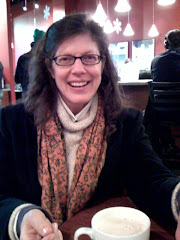





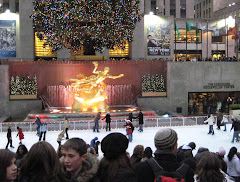.jpg)

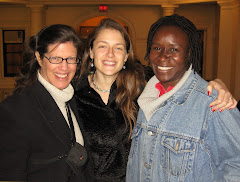.jpg)


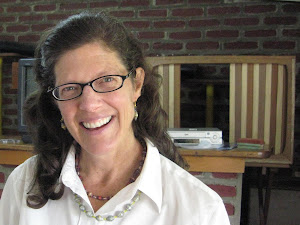.jpg)

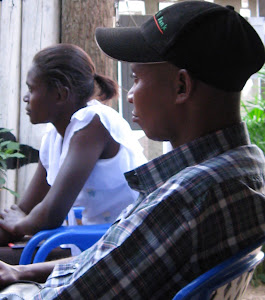.jpg)
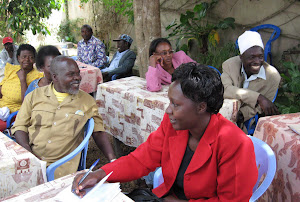.jpg)
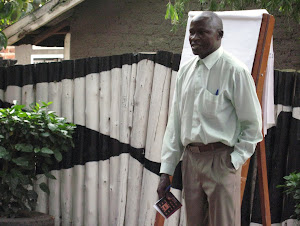.jpg)




























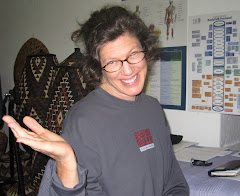



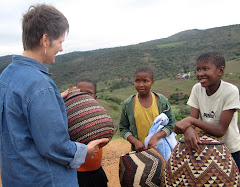.jpg)




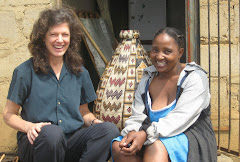










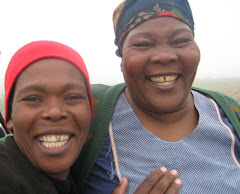.jpg)

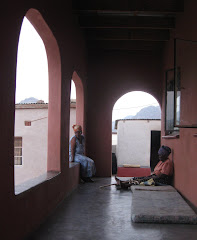.jpg)

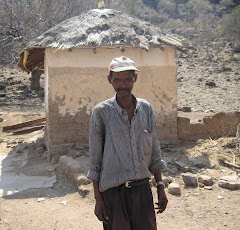.jpg)
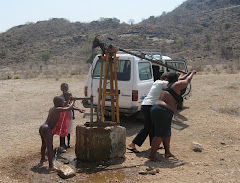.jpg)
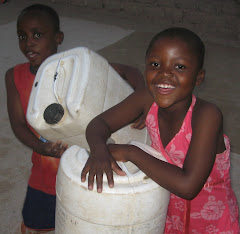.jpg)
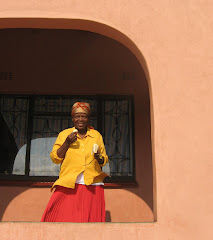.jpg)

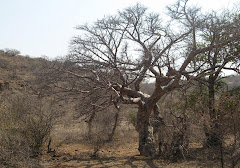.jpg)



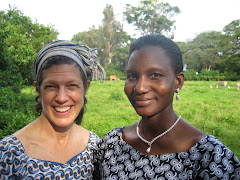



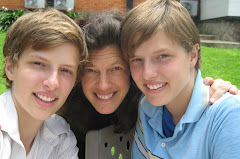.jpg)
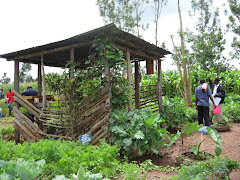
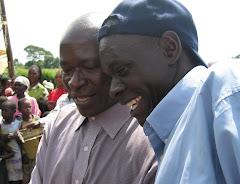.jpg)

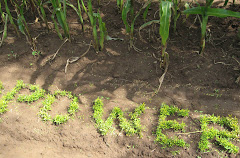.jpg)
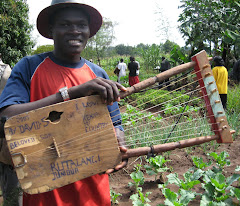.jpg)





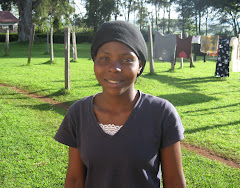.jpg)



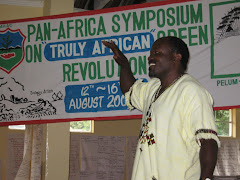

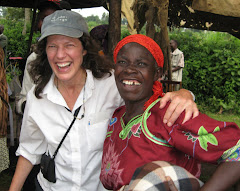.jpg)
















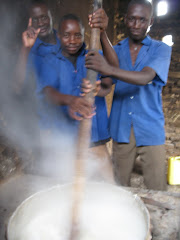.jpg)










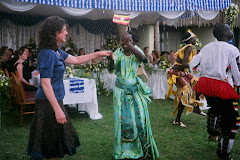.jpg)
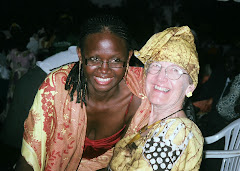.jpg)



